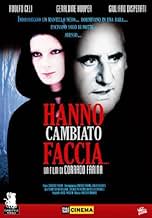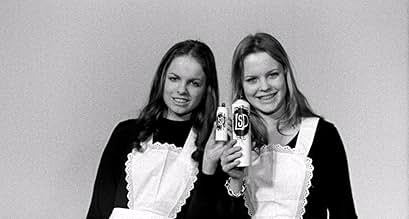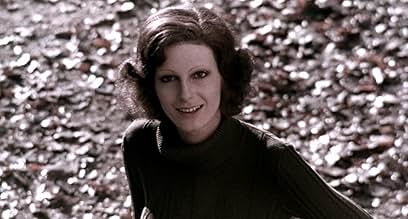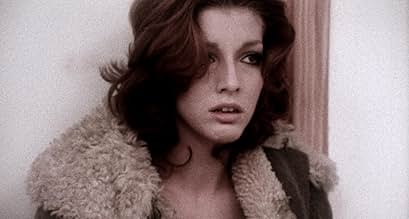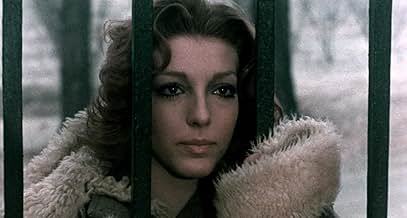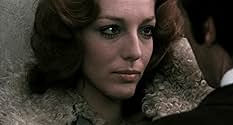Ajouter une intrigue dans votre langueIn this allegory on capitalism, director of a known car corporation invites one of his employees to his country villa to give him the good news. He just got promoted. However, the old man is... Tout lireIn this allegory on capitalism, director of a known car corporation invites one of his employees to his country villa to give him the good news. He just got promoted. However, the old man is not what he seems and promotion has a price.In this allegory on capitalism, director of a known car corporation invites one of his employees to his country villa to give him the good news. He just got promoted. However, the old man is not what he seems and promotion has a price.
- Réalisation
- Scénario
- Casting principal
- Récompenses
- 1 victoire au total
- Alberto Valle
- (as Giuliano Disperati)
- Priest
- (non crédité)
- Scientist in spot commercial
- (non crédité)
- Actor in commercial spot
- (non crédité)
Avis à la une
They Have Changed Their Face is not going for subtlety, and in fact assiduously avoids it. One of its strengths is how intentionally, unabashedly on the nose it is with its core analogy and themes. The script compares vampirism so closely with capitalism and consumerism from the opening minutes that the analogy is almost erased, with the two represented things being almost literally one in the same. The movie's "Dracula" figure is an oligarch, owner of a vast network of companies and puppet master of a global network of politicians, artists, and religious leaders. He is also a fascist, which, especially combined with the hypercapitalism dimension, makes the movie even more anti-conformist.
It's a sad commentary on the current state of humanity how well this movie has aged. It perfectly foreshadowed the rise of 21st century fascism and late-stage capitalism, and even the current social and individual psychosis of "mass narcissism" demonstrated on social media platforms, through so-called reality shows, and in a certain president and among his sycophants (not to mention, you know, the whole fascism thing), etc. Mass narcissism is the actual term used by the oligarch-vampire, whose name is hilariously literal: Mr. Nosferatu. A speech, or maybe more accurately, sales pitch, he gives our Johanthan Harker figure earlier in the movie about the masses, and his plans for them-is practically the dictionary definition of fascism. Those plans include fomenting that mass narcissism by, among other things, manipulating and compelling consumers to buy what he wants them to buy. We even learn in the opening minutes of the movie that Van Helsing has sold out and works for Mr. Nosferatu. That is sooo dark and savvy, and reflects the level of astute satire at work here.
That astuteness and directness is also evident during a business gathering filled with overlapping conversations. Among others, we catch this moment: "Bergman and Godard are slaves! The only free cinema is advertising. Advertising cinema is cinema vérité." So, it turns out that what we're watching, while ostensibly a "horror" movie-it certainly has some elements of horror-is closer to European art cinema, including the particular kind of social and political satire we see in some of the films of that era.
They Have Changed Their Face is also well-paced for the most part, has a good score, and is genuinely entertaining on the fundamental level of story, with a bit of conspiracy plot and a decent amount of suspense.
Two shortcomings I would mention: There are ways in which the story, plot, and directing could have brought in some additional traditional horror and vampire elements, which I think would have been a strength and not a distraction with respect to the art film ethos and themes (e.g., fate vs choice) of the film. In addition, the ending, while adequate, felt like a couple of shots-not even necessarily scenes-were left on the cutting room floor which could have clarified in just a few seconds of screen time some plot points and main themes.
That said, this film fits the definition of a hidden gem. It's pretty well-rated on IMDb and Letterboxd, but is nonetheless underrated. I've never seen it included in any lists of overlooked flicks, top vampire movies, and the like, and as far as I've seen it's never included in discussions of vampire movies. While utterly different from vampire floicks like Dracula's Daughter (1936), The Vampire's Ghost (1945), Curse of the Undead (1959), Blacula (1972), Ganja & Hess (1973), and Let the Right One In (2008), I would include They Have Changed Their Face among those as one of the most unusual vampire movies out there.
As of July 2025, They Have Changed Their Face is available to stream for free on Tubi.
Side note re. The capitalism theme: The Satanic Rites of Dracula (1973) has the count posing as a property developer in modern London, but the movie does nothing particularly interesting with that odd idea.
Alberto Valli is an inconspicuous employee in a large automobile company. His modest job status is perfectly illustrated by the floor he works on. One morning, he hears from the CEO that none other than the company's founder and Vice President, Giovanni Nosferatu, has summoned Alberto to his mansion in a remote mountain area. With a name like that, Alberto should know better than to accept, but he's honored and undertakes the journey. He meets up with a half-naked hitchhiker and a whole bunch of dead-silent mountain villagers before arriving at the estate. Nosferatu is a strange fella, or what else did you expect, but he does make some very impossible-to-refuse offers to Alberto.
There are many bizarre gimmicks in "They've Changed Faces", and the fact they remain unexplained only makes the film more intriguing. What is a topless hippie girl doing in the middle of nowhere? What is the meaning of Nosferatu's mute henchmen driving around the estate in white Fiat 500s? Why does Alberto leave behind a gorgeous naked girl and sleeps around with a creepy, asexual secretary instead? How brilliant is the idea of playing advertisements when sitting down in a chair or stepping into a shower?
The essence of the film, namely that old-fashioned Gothic vampires have evolved and now form the elite members of the business, media, advertisement, sports,religious, artistic world, is truly unique. Adolfo Celi is fantastic, as usual, but I would have preferred he had more screen time. The musical score by Amadeo Tommasi (also known for his excellent work for "The House with Laughing Windows) is the best thing in an already very good movie. Writer/director Corrado Farina's other cult-horror flick "Baba Yaga" might be more popular and better known, but personally I think this one is a much better film.
Le saviez-vous
- AnecdotesDebut role and only career nude scenes for Francesca Modigliani. She made one more film after this and then quit acting.
- Citations
Actor in commercial spot: A shower isn't a shower if your water pipes don't contain A-1 Tonic.
Actress in commercial spot: With A-1 Tonic, you're younger, stronger ... happier to live and love!
Actor in commercial spot: [letter "A" in Italian, sighed as an ecstatic "Ah!"] A-1 Tonic caresses your skin.
Actress in commercial spot: [also with the ecstatic "Ah!"] I'd also like to feel A-1 Tonic caress my skin.
Actor in commercial spot: You can't, unless you surrender. without shame, young and naked.
Actress in commercial spot: I am young, and I'm also...
[Alberto turns off water, cuts off ad]
- ConnexionsSpoofs La strada (1954)
Meilleurs choix
- How long is They Have Changed Their Face?Alimenté par Alexa
Détails
- Date de sortie
- Pays d’origine
- Langue
- Aussi connu sous le nom de
- They Have Changed Their Face
- Lieux de tournage
- Chieri, Torino, Piemonte, Italie(Giovanni Nosferatu's house)
- Société de production
- Voir plus de crédits d'entreprise sur IMDbPro
- Durée1 heure 36 minutes
- Couleur
- Mixage
- Rapport de forme
- 1.85 : 1

